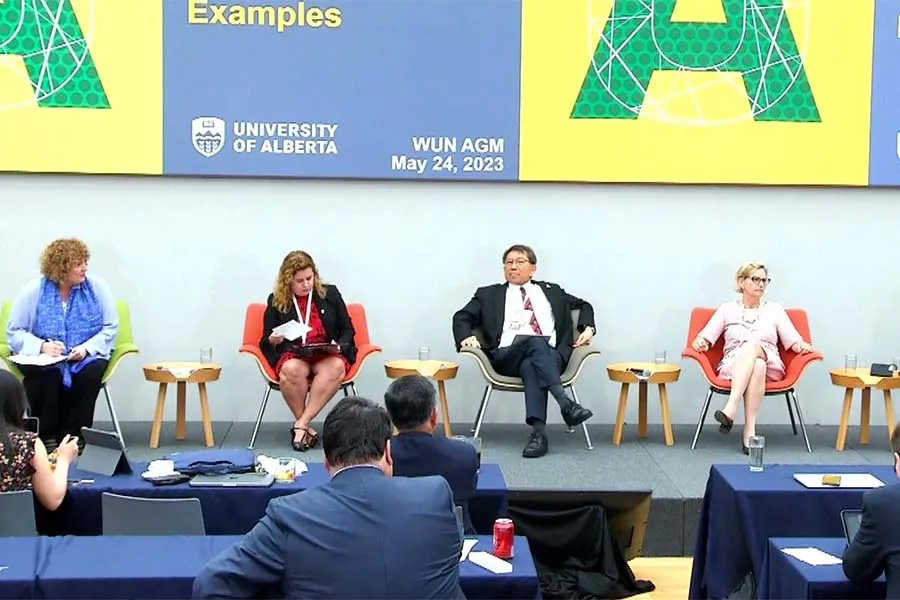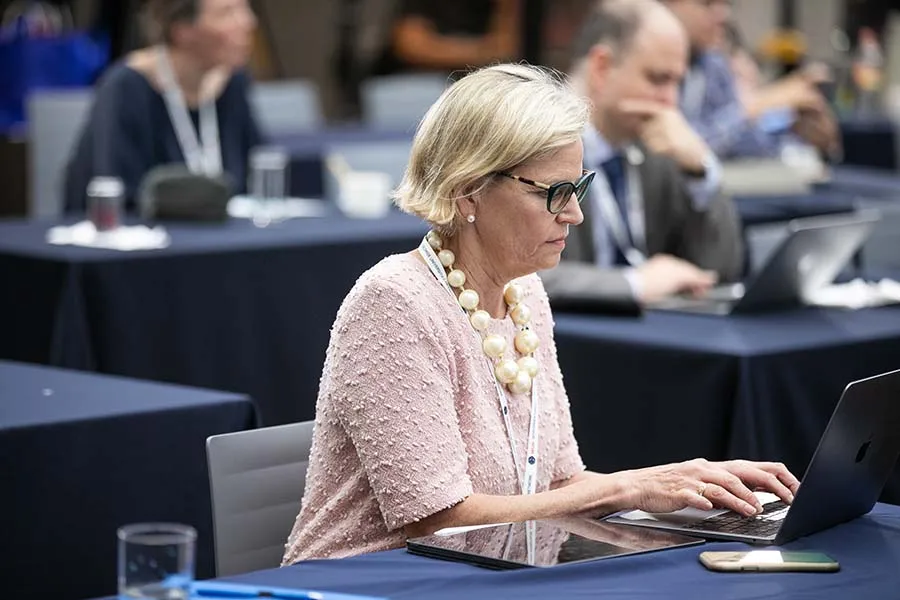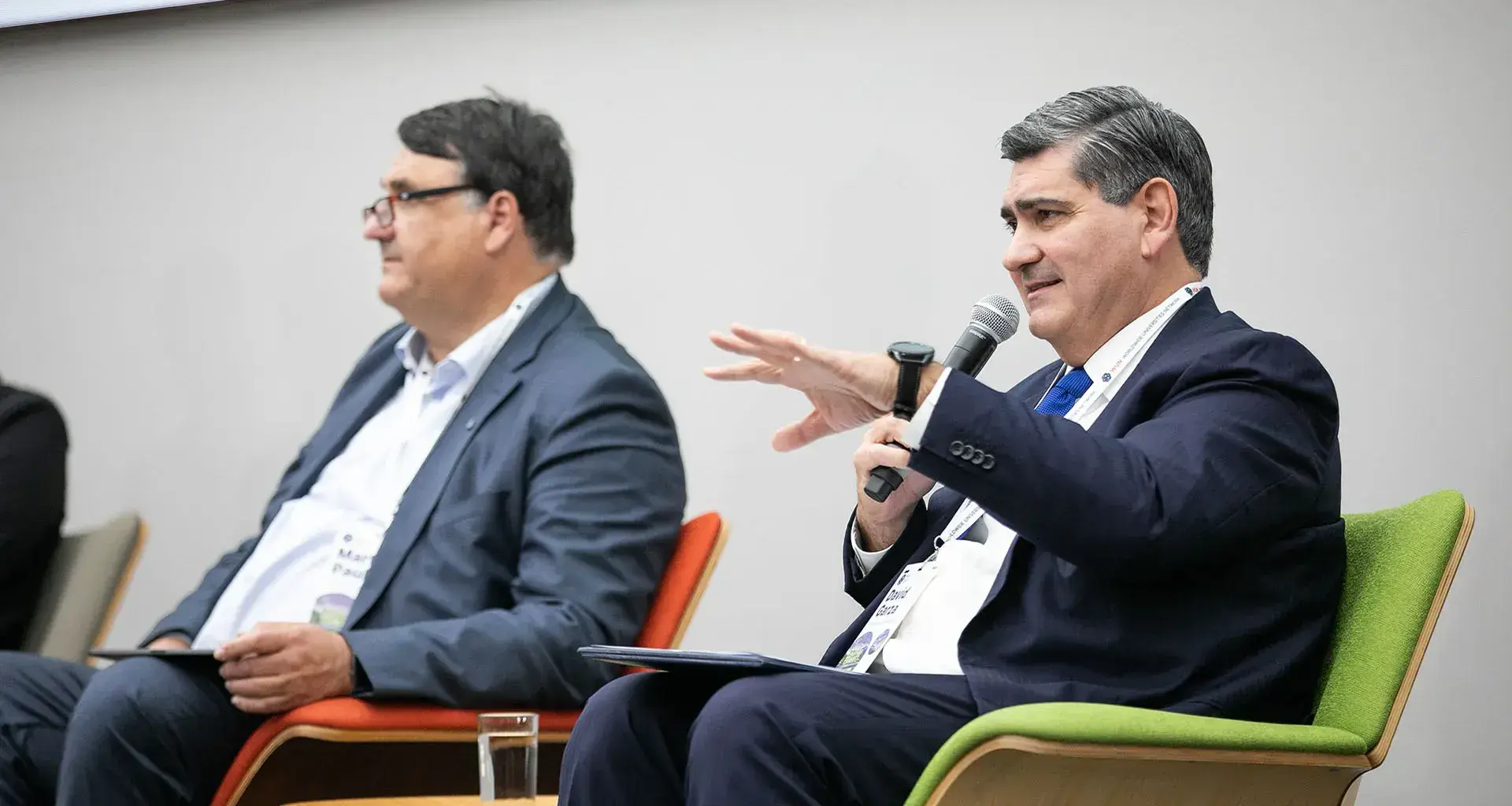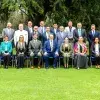At the Annual General Meeting of the Worldwide Universities Network (WUN) hosted by Tec de Monterrey, leaders exchanged ideas and ways to collaborate on tackling global challenges, such as climate change.
It was attended by 17 leaders of institutions from 14 countries, such as CU of Hong Kong (QS 39), University of Bristol (QS 62), University of Southampton (QS 77), University of Auckland (QS 85), University of Leeds (QS 92), University of Sheffield (QS 95), and University of Rochester (USNEWS 36).
David Garza, Rector and Executive President of the Tec, participated in the panel Leadership in Policy and Practice on the third day of activities in the WUN Presidents Forum 2023.
“We’re delighted that this meeting can take place in person at Tec de Monterrey this year after being interrupted during the pandemic,” said Peter Lennie, Executive Director of WUN.
Focusing on tackling the problems of climate change
The panel in which Garza took part discussed how educational institutions can set an example for addressing environmental issues.
Joining him were Martin Paul, Rector of Ruhr University Bochum; Barnabas Nawangwe, Vice-Chancellor of Makerere University; and Gaby Odekerken-Schröder, Associate Dean of Internationalization and Collaboration at Maastricht University.
Each university leader shared what they are doing about the environment, with Garza highlighting the Ruta Azul initiative, which is the institution’s sustainability and climate change plan for 2025.
“When we were designing the strategic plan for the next few years, we decided that sustainability had to play a key role as part of that plan and defined 15 projects, creating what we call Ruta Azul.
“Our plan has different dimensions, such as mitigation, adaptation, research, and education. We started to implement the plan in 2020,” explained the Rector of the Tec.
He also spoke about the results that have been obtained after implementing this plan.
“We obtained a reduction of more than 40 percent in emissions for activities that we perform on campus, a 10 percent reduction in energy consumed per square meter,” he added.
Nawangwe explained that the project he has been working on is related to building with local materials, in which they built some structures from bamboo and others from compressed earth blocks to convert places into more sustainable spaces.
Maastricht University has decided it is important to reduce its carbon footprint, explained its Associate Dean of Internationalization and Collaboration, Gaby Odekerken-Schröder.
“By 2030, Maastricht University intends to be a completely sustainable university and promote sustainable development through its contributions on the world’s most pressing problems.
“The operations of our university inspire and lead by example through reducing its carbon footprint, improving health and wellbeing, and implementing circularity,” said Odekerken-Schröder.
Martin Paul said that they had defined four global issues to work on: digitalization, internationalization, diversity, and sustainability.
“I took on the issue of sustainability due to my experience. You have to involve the entire community in this task. I put together a sustainability task force to create strategies in different areas such as energy and sustainable construction,” he said.
“Our plan has different dimensions, such as mitigation, adaptation, research, and education. We started to implement the plan in 2020.” - David Garza
University syllabuses and climate change
Another session included Sandra Almeida, President of the Federal University of Minas Gerais; Bill Flanagan, President of the University of Alberta; and Rocky S. Tuan, President and Vice Chancellor of the Chinese University of Hong Kong.
Together with Evelyn Welch, Vice Chancellor of the University of Bristol, they discussed how universities have adapted to address educational needs focused on the societies they serve and the environment.
This session was moderated by Inés Sáenz, Vice President of Inclusion, Social Impact and Sustainability at Tec de Monterrey, who expressed her opinion on the role of universities in social impact.
“The climate emergency is a major challenge for universities, and these challenges can vary depending on the institution and the specific context.
“Climate change is a complex and interdisciplinary issue that requires knowledge from several fields. So, incorporating this into the disciplinary focus in existing academic structures can be a challenge, as it may require collaboration,” said Sáenz.

She also explained that although all universities have limited resources, investment is required to improve education on climate change.
“This process requires careful planning and coordination between faculty to guarantee a cohesive and balanced syllabus in the absence of standardized frameworks,” she added.
Sáenz said that as climate change is an active area of research, universities should update their syllabuses with the latest scientific knowledge.
“This requires permanent monitoring of the research and adapting course materials,” said Sáenz.
Over these three days, leaders from different universities shared the work they are each doing regarding environmental care and social impact, as well as the research they have participated in.
“Change cannot be achieved without universities, whether due to our research, education, or by setting examples with our internal policies. That’s what we’ve been talking about here in our speeches and discussions,” said Sandra Almeida in her remarks to conclude the AGM.

WUN leaders meeting
The Worldwide Universities Network (WUN) brings together 24 universities across six continents in a collaborative partnership to advance research on major global challenges.
Capitalizing on the geographical and cultural diversity of its members, WUN enriches their shared experience and brings together distinctive constellations of talent to address problems of real significance.
Tec de Monterrey has been a member of this group of universities since 2018, sharing experiences with educational institutions from six continents and making WUN a unique forum for exchanging knowledge.
For the first time, Tec de Monterrey is hosting the Annual General Meeting of the Worldwide Universities Network (WUN) from May 22 to 24 at its Monterrey campus, with the attendance of 17 leaders of institutions from 14 countries.
ALSO READ:





